| Vintage Pulp | Mar 1 2023 |

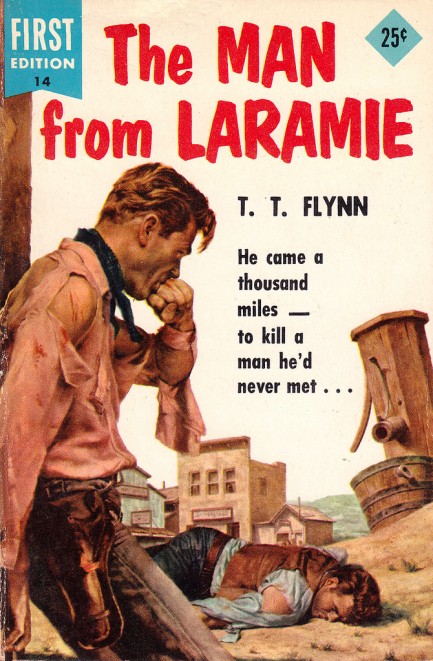
| Vintage Pulp | Oct 11 2022 |

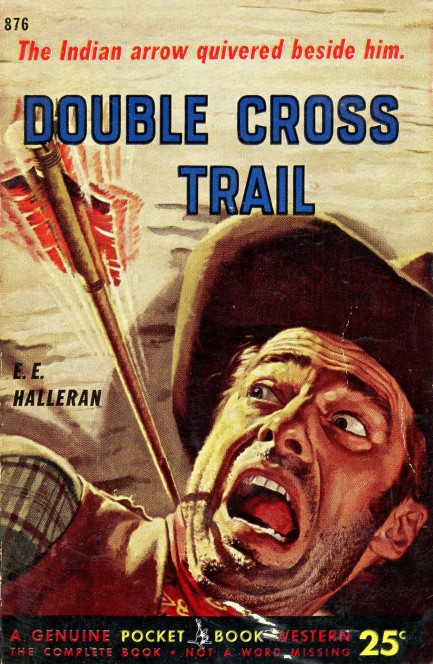
Vintage cowboys, as we said above, are usually tough and stoic, so we're going to guess the one on the cover of E.E. Halleran's Double Cross Trail isn't the main character. We've haven't read the book, so it's just a guess. But even when confronted with Cheyenne raiding parties, and even when fighting alongside the doomed George Armstrong Custer—which happens here—we bet the protagonist keeps his cool. We're firmly in the real history camp (as opposed to the patriotic mythology camp), however we've had good luck with westerns. None that we've read have had historical blinders on. A friend sent us an enjoyable one, Warren Kiefer's Outlaw, but as it's a 1989 book without pulpworthy cover art we won't highlight it. We're tempted to try Double Cross Trail but the stack of books is high, and the demands on our time are many. The amusing cover art here is by Stanley Borack, and this Pocket edition followed the novel's 1946 original publication in 1952.
| Vintage Pulp | Jun 17 2022 |

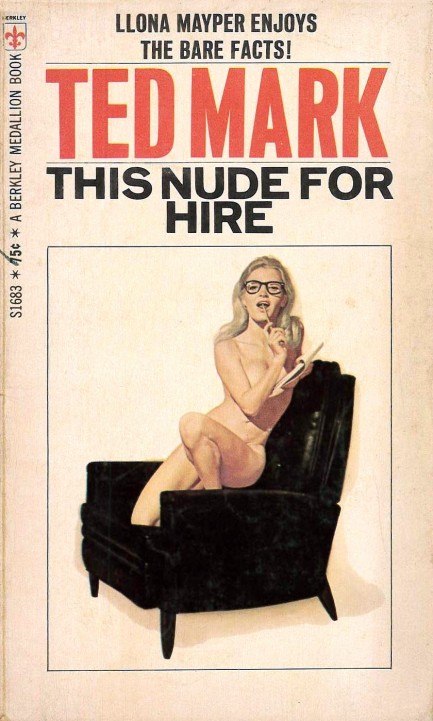
Yes, that's right, we've done it again. After going through the longform cockteasing that is Ted Mark's sex(less) romp The Nude Who Never, we're back with the second non-entry in the Llona Mayper series This Nude for Hire. What can we say? We acquired them together, so we had to read both, right? Like the earlier book, this one has Stanley Borack cover art, and also like the first book, the story is derptacular from start to finish. Mark's franchise nymph Llona is now unhappily married, and accepts a job as a receptionist at a Playboy-like magazine, only to find that she's supposed to do the job naked. Her co-workers create an office pool to see who can lay her first, but each attempt at seduction fails in silly, slapsticky ways—for example she accidentally snatches off her boss's toupée. It continues in this mode, a Buster Keaton serial with blue balls, with all potential cummers failing (though one guy gets a blowjob before his mom interrupts). Mark takes this tale all kinds of idiotic places, and as with the earlier book, you just have to give in. It's not legitimately erotic, but it's funny in a few parts. Overall we think it's better than This Nude for Hire—but that's not an endorsement. Repeat: not an endorsement.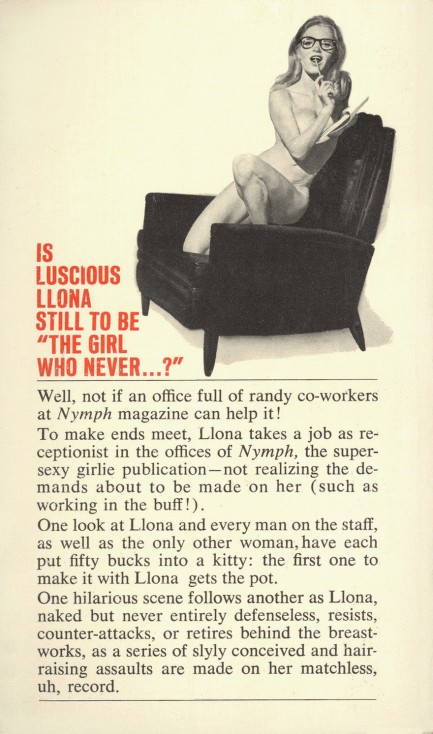
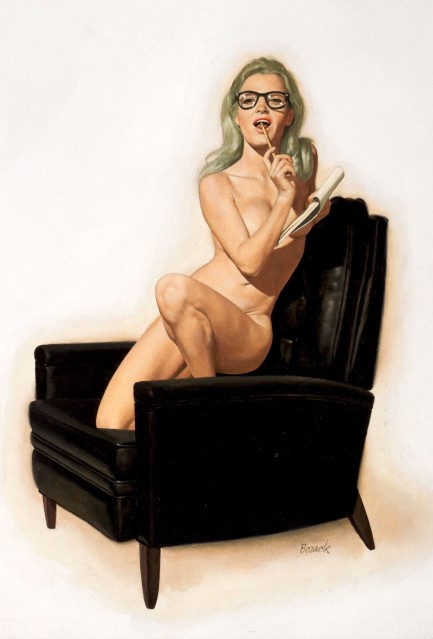
| Vintage Pulp | Jun 16 2022 |

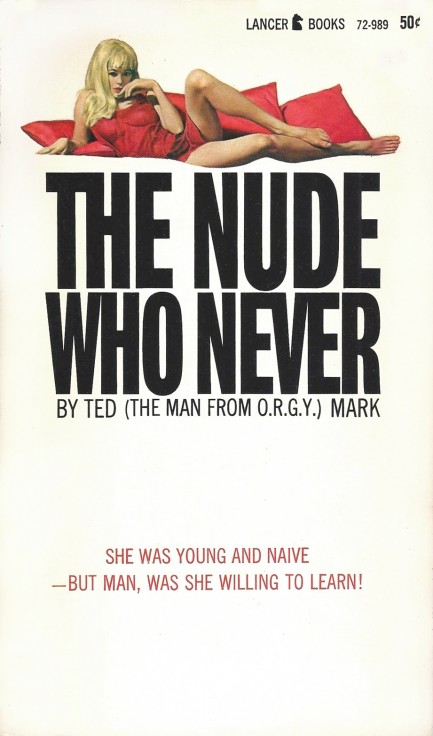
| Vintage Pulp | Jul 5 2020 |

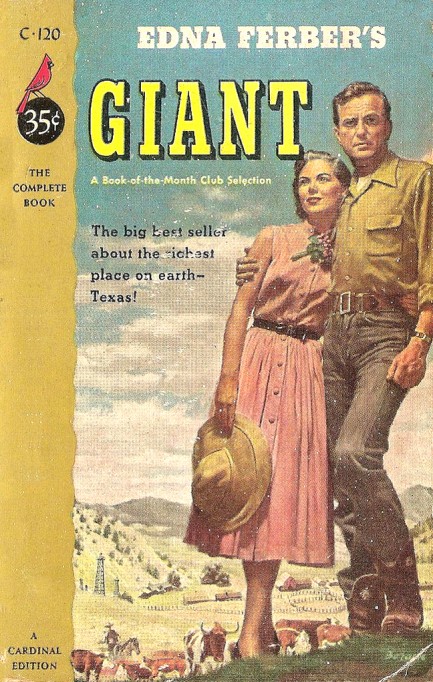
| Vintage Pulp | Mar 12 2012 |

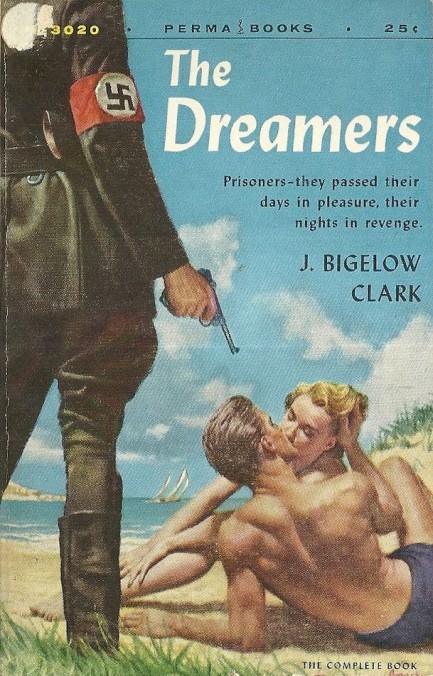
This book is brilliant, but it will be problematic for some readers because the villain Captain Muller—and he's a very, very bad guy—is gay. His sexuality is a metaphor. As a German officer his incredibly high opinion of himself has primarily to do with his control over and manipulation of men. While some artists use paint or words, he feels he's a Picasso or Titian using humans—the most difficult medium of all—to produce more concrete effects upon civilization than mere visual art does. And his ultimate expression of oneness with his medium is sexual congress with them. Clark's final postulation is that for many men of war, and particularly fascists, violence is a form of eroticism.
Other elements here are also metaphorical, even the island itself. Though the expats, among them an elderly British professor and a German baron, are of different ages and cultures, they become fast friends. Their island is not perfect. There is want and conflict. But without being indoctrinated into the ways of hate people generally help, or at least tolerate, each other. The island represents the possibility of smooth human coexistence. But Captain Muller's purpose is to exert control through violence and fear. He's immediately interested in and drawn to the four expats, and shrewdly understands that the group's relationship with two locals—a legless veteran of the North Africa front and a beautiful young mother—may be the key to achieving his goals.
While all this is going on an American spy arrives on the island and sets into motion a plot to steal diagrams of the submarine bases the Germans are building. The narrative focuses on the professor's and baron's efforts to remain uninvolved, but also follows how a promise
 they've made to get the young mother and her child off the island draws them all, bit by terrible bit, into the war against their will. Transitioning from apathy to activism is a standard theme in literature and film, but Clark manages to navigate this course with rare skill. As it develops, The Dreamers generates squirm inducing intensity, almost akin to psychological horror.
they've made to get the young mother and her child off the island draws them all, bit by terrible bit, into the war against their will. Transitioning from apathy to activism is a standard theme in literature and film, but Clark manages to navigate this course with rare skill. As it develops, The Dreamers generates squirm inducing intensity, almost akin to psychological horror.But the book's value is in more than just its bold narrative. As time goes by people's knowledge of history comes not from those who lived through it, but from interpreters of it. When conducted under rigorous standards, re-examinations of history are useful and even necessary, but many of this group are not rigorous, and have shady political motives. In the U.S. this manifests as fanciful spins on slavery, the Civil War, and other periods. Many American schoolchildren are now being taught that fascism is the exact opposite of what it was in reality. The Dreamers, written during the fascist era, is clear about what fascism is, how it works, what it seeks to accomplish, and what end of the political spectrum it comes from. Every novel we've read from this period is consistent on these points.
Thus in addition to being a very good book, The Dreamers is yet another reminder that: Mussolini was well liked for years in the U.S. because he was perceived to have saved Italy from communists. Regardless of whether Adolf Hitler had any religious beliefs in private life, the German people knew him as a Catholic, he constantly invoked God in his speeches, and the Holocaust was conceived, conducted, and abetted by people who were overwhelmingly religious. Fascism was vehemently sexist, racist, patriotic, and anti-liberal. Fascism distrusted diplomacy, independent knowledge, and a questioning press, replacing them with aggression, indoctrination, and propaganda. And like all governing systems, fascism was ultimately opportunistic, borrowing any political idea that helped consolidate power.
One benefit of maintaining Pulp Intl. is constantly reading books written contemporaneously with historical events and learning how they were perceived by people who lived through them. The Dreamers has extra value because of this. It's homophobic, though Clark's use of a gay villain is intended to coalesce into metaphor. His scathing attitude toward Germans, on the other hand, never does. It seems as if he hates them en masse. His protagonists often muse about German moral shortcomings. These condemnations of an entire people are an obvious case of turnabout is fair play, and one can hardly be surprised considering what the world was learning about Hitler's atrocities. The Dreamers remains an illuminating reading experience.




































































